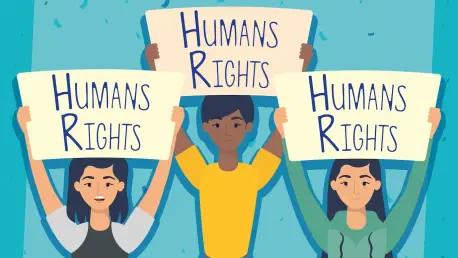The glaring spotlight on Georgia’s intensifying scrutiny of non-governmental organizations (NGOs) has sparked widespread alarm over potential breaches in civil liberties. Legal directives from the Tbilisi City Court compel numerous human rights and democracy-centric NGOs to furnish comprehensive personal data to the Anti-Corruption Bureau (ACB). This demand not only raises questions about the timely compliance requirements tied to GEOFARA and the Law on Grants but also poses a risk of criminal prosecution for non-compliance. When the appeal went unheard and was subsequently rejected by the Tbilisi Court of Appeals, concern escalated, underscoring anxieties around potential human rights violations.
Legal Challenges Facing Civil Society
Broad Judicial Orders
The issuance of sweeping court orders by the Tbilisi City Court has directed attention to the invasive demands placed upon NGOs, fostering a climate of tension between national judicial mandates and civil society operations. These directives obligate the submission of vast arrays of both public and sensitive private information of beneficiaries under the guise of adhering to the Foreign Agents Registration Act, alongside amendments to the Law on Grants. The requirement to provide such comprehensive data within an exceptionally short three-day window has been met with outrage, highlighting fears of potential criminal repercussions for entities unable to comply fully or timely. Amid mounting pressure, appeals for judicial reconsideration were outrightly denied, further intensifying apprehensions around judicial impartiality and the broader ramifications on civil liberties. These legal challenges come at a time when human rights advocates are already navigating an environment fraught with rising hostilities and smear campaigns threatening their legitimacy and operational capacity.
Data Privacy Concerns
Critical conversations have emerged around the compatibility of these judicial requisitions with Georgia’s privacy rights as outlined under international agreements such as the European Convention on Human Rights (ECHR). Article 8 of the ECHR safeguards individuals’ privacy and data protection, calling into question whether such broad measures align with established standards. Critics argue that the immediate nature of these demands grants expansive authority to inspection bodies like the ACB, potentially infringing upon freedom of association protected under Article 11, alongside the right to procedural remedies as detailed in Article 13. Moreover, the prevailing climate of intimidatory tactics and defamatory efforts against NGOs compounds the risk of marginalizing outspoken human rights defenders, bridging significant discourse concerning the importance of preserving operational freedom within democratic frameworks. Awareness and advocacy for adherence to global human rights vows remain pivotal in balancing national and international mandates amid evolving legal landscapes.
Societal Implications in Georgia
Impact on Freedom of Expression
In the face of mounting pressures and heightened scrutiny, Georgia’s civil society actors are experiencing what many consider an assault on the foundational pillars of democracy, notably freedom of expression and association. As NGOs face demands to divulge sensitive information, concerns are amplified around how such practices might deter open dialogue and robust advocacy. The suppression of these organizations under the guise of legal compliance threatens to mute voices that are instrumental in fostering societal change, raising valid arguments about the sustainability of democratic principles amidst growing governmental oversight. Observers warn officials to tread carefully, aligning policies with international doctrines to avoid sanctions that could exacerbate geopolitical tensions and domestic unrest. These occurrences stress the necessity for continuous dialogue within the international sphere to uphold civil liberties effectively.
Future Outlook and Recommendations
The spotlight on Georgia’s growing scrutiny of non-governmental organizations (NGOs) has raised alarms over potential violations of civil liberties. The Tbilisi City Court has issued legal mandates requiring many NGOs focused on human rights and democracy to provide extensive personal data to the Anti-Corruption Bureau (ACB). This directive not only questions the compliance deadlines related to GEOFARA and the Law on Grants but also suggests the threat of criminal charges for non-compliance. As the case progressed, the Tbilisi Court of Appeals dismissed an appeal, intensifying concerns and highlighting fears about possible human rights infringements. This series of events has amplified the debate over governmental oversight versus the autonomy of NGOs, stressing the delicate balance between lawful governance and safeguarding civil freedoms. The impact on democratic institutions and individual liberties remains a pressing issue as the international community continues to monitor the situation in Georgia.









